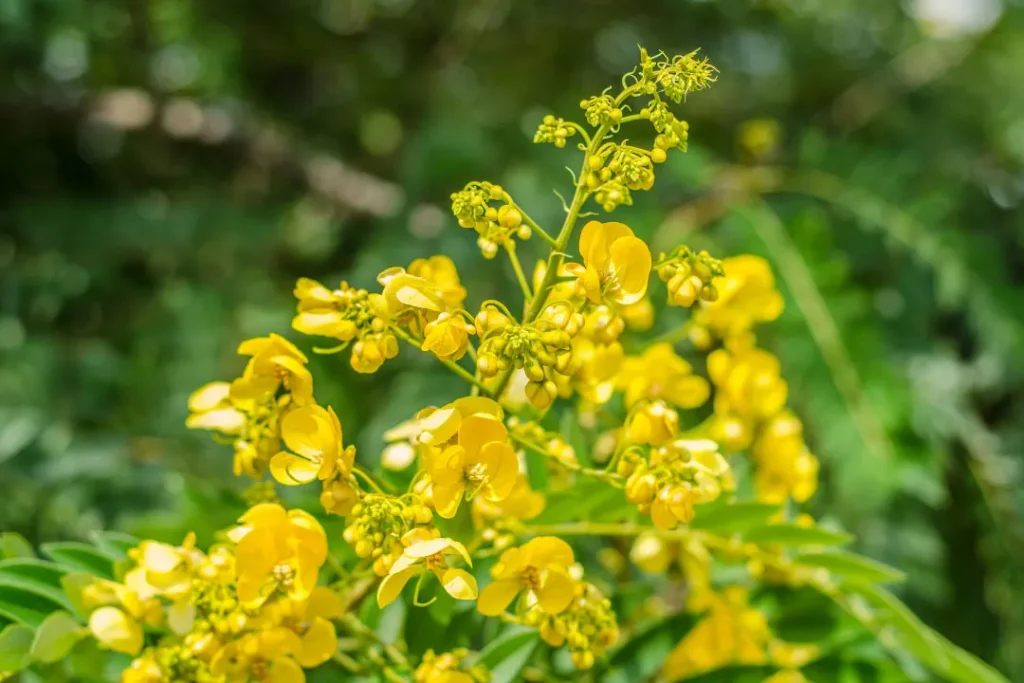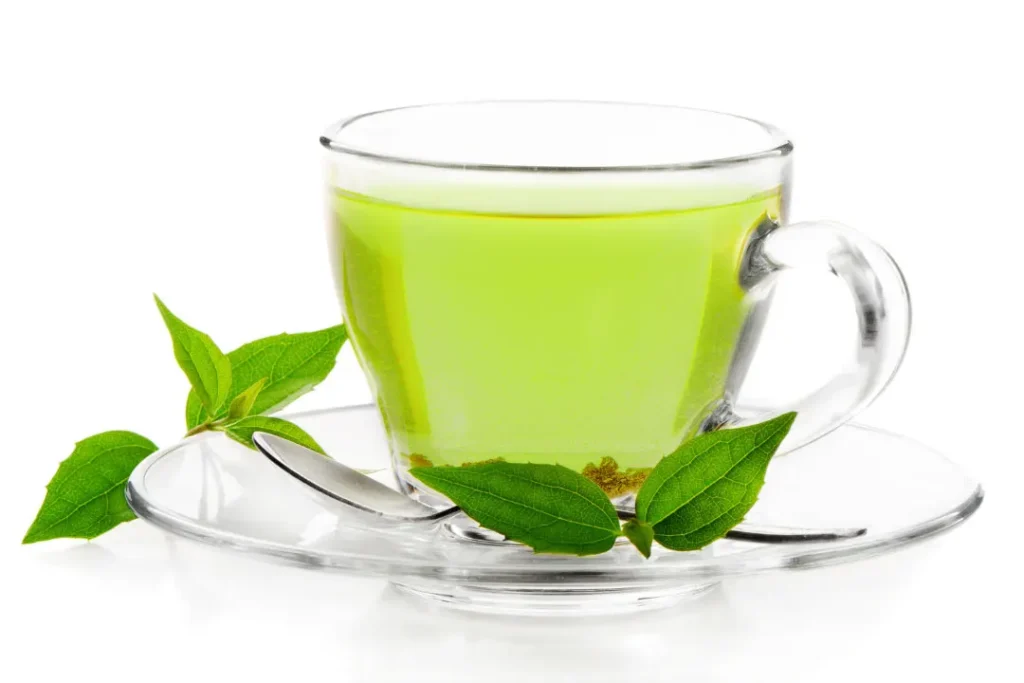China-native Cassia nomame is becoming more well-known for its potential as a medicine and for its use in dietary supplements. This article examines the characteristics, health advantages, recommended dose, negative effects, and possible interactions of Cassia nomame. We will examine the plant’s chemicals as well as the physiological processes that underlie how it affects the body and the brain.
You May Also Like:
BioPerine®: Benefits, Dosage, Side Effects, Drug Interactions, and Other Important Information
Nature of Cassia Nomame
The perennial plant Cassia nomame, commonly referred to as “herbaceous wild pea,” is a member of the Fabaceae family and is a native of Eastern Asia, mainly China and Japan. The plant has feathery leaves and yellow blooms that are normally plucked while they are in bloom.
Flavonoids are prevalent in Cassia nomame and in terms of chemistry, flavonoids, this class of plant metabolites are recognized for their health advantages. Catechins, the main flavonoids in Cassia nomame, are also present in significant amounts in green tea.

Health Benefits of Cassia Nomame
The flavonoid content of Cassia nomame, particularly its catechins, is mostly responsible for any putative health benefits. These substances’ anti-inflammatory, antioxidant, and lipid-lowering abilities have all been extensively researched.
- Weight Management: Cassia nomame is often used in weight reduction products due to its capacity to suppress lipase, an enzyme involved in the digestion and absorption of fat. This will decrease the overall absorption of dietary fat.
- Antioxidant and Anti-Inflammatory Effects: Flavonoids, especially catechins, have strong antioxidant properties that enable them to counteract potentially damaging free radicals in the body, therefore lowering oxidative stress and inflammation. This antioxidant’s ability may aid in preventing many chronic illnesses, such as cancer and heart disease.
- Blood Sugar Regulation: According to some studies, Cassia nomame may aid in blood sugar regulation, making it potentially advantageous for those who have type 2 diabetes or are at risk of developing it.
Chemistry of Cassia Nomame
A chemically varied plant, Cassia nomame, contains a variety of bioactive substances, and the most notable among those substances are flavonoids. As mentioned, flavonoids are renowned for their many health advantages. Catechin, a strong antioxidant is the main flavonoid in Cassia nomame also present in other plants like green tea and cocoa.
Cassia nomame also contains phenolic acids, which are recognized for their antioxidant qualities, in addition to flavonoids. These substances aid the plant’s capacity to neutralize free radicals and defend the organism from oxidative stress.

Physiological Mechanisms of Action
The activities of Cassia nomame’s main bioactive components, mainly catechins, are primarily responsible for the physiological processes behind its benefits.
- Weight management: Catechins in Cassia nomame have been proven to block the activity of lipase hence decreasing the amount of fat that is processed and absorbed into the body by blocking lipase, which may aid with weight control.
- Antioxidant and Anti-Inflammatory Effects: Cassia nomame contains strong antioxidants called catechins and phenolic acids that may combat free radicals in the body. Free radicals are unstable chemicals that, when present in excess, may harm cells and cause oxidative stress and inflammation. The chemicals in Cassia nomame may aid in defending against these negative effects by scavenging free radicals.
- Blood Sugar Control: The flavonoids in Cassia nomame may help regulate blood sugar levels. They may do this by improving the function of the hormone insulin, which controls blood sugar, or by delaying the absorption of sugar into the circulation.
The known activities of Cassia nomame indicate its potential for a variety of health advantages, even if research into Cassia nomame and its effects on the body is still in its infancy. To completely comprehend these processes and the possible therapeutic uses of Cassia nomame, further investigation is required.
Optimal Dosage of Cassia Nomame
An ideal dose hasn’t been determined since human research on Cassia nomame is so scant. You are advised to follow product directions or contact a healthcare professional since the dosages used in supplements vary greatly among individuals.

Potential Side Effects of Cassia Nomame
When used as recommended, Cassia nomame is generally regarded as safe for the majority of users. But while it could decrease cholesterol, it might also have adverse gastrointestinal effects like other fat blockers, such as loose stools, abdominal bloating, and more frequent bowel movements.
Potential Substance Interactions with Cassia Nomame
There is a chance that Cassia nomame may interact with certain drugs or other supplements, just as with any other dietary supplement. Before beginning a new supplement, people should always speak with a healthcare professional, particularly if they are also using other drugs or supplements.
There could be interactions with diabetic drugs because of Cassia nomame’s putative blood sugar-regulating properties. The blood sugar-lowering effects of these medications may be enhanced by Cassia nomame, which might result in hypoglycemia or dangerously low blood sugar. It’s critical to speak with a healthcare professional before beginning Cassia nomame supplementation if you’re using diabetic medication.
Another possible interaction to take into account is its interaction with various weight-loss products or drugs, especially those intended to prevent the digestion or absorption of dietary fats. Combining Cassia nomame with other fat-blocking supplements or drugs might possibly enhance adverse effects including gastrointestinal discomfort since it has been shown to inhibit the lipase enzyme.
Last but not least, Cassia nomame may interact with anticoagulant or antiplatelet medications, perhaps boosting their blood-thinning effects. This owes to its high flavonoid concentration, making bleeding more likely, especially for those who have bleeding problems or are having surgery.
These possible interactions emphasize how crucial it is to speak with a doctor before beginning any new supplement, especially Cassia nomame. The ideal way to approach supplementing is as a component of a holistic health plan that considers your health status, prescriptions, and way of life in general.

Responsible Uses of Cassia Nomame
Even though Cassia nomame may have health advantages, it should be done with caution. It is essential to keep in mind that, although this supplement might promote health, it cannot replace a balanced diet and an active lifestyle. Additionally, it is advised to speak with a healthcare professional before beginning supplementation due to the possible negative effects and interactions, particularly for those with pre-existing medical issues or those who are on medication.

Cassia Nomame:
Conclusion
Cassia nomame is a natural herb originating from China. Cassia nomame is known for its potential benefits for the body and brain. This supplement can be used for weight management by suppressing lipase formation and decreasing the absorption of fat. This herb contains bioactive compounds such as flavonoids that may help support a healthy metabolism and promote weight loss. However, it is pivotal to seek a personalized regimen from a medical professional before incorporating Cassia nomame into your diet. You must always obtain Cassia nomame from trusted sources and reputable sellers to ensure the quality of the supplements.
References:
- “The Role of Catechins in Cellular Responses to Oxidative Stress.” Retrieved from: https://www.mdpi.com/1420-3049/23/4/965
- “Catechins and Their Therapeutic Benefits to Inflammatory Bowel Disease.” Retrieved from: https://www.ncbi.nlm.nih.gov/pmc/articles/PMC5380612/
- “Impact of Cassia Bark Consumption on Glucose and Lipid Control in Type 2 Diabetes: An Updated Systematic Review and Meta-Analysis.” Retrieved from: https://www.ncbi.nlm.nih.gov/pmc/articles/PMC8361532/
Important Note: The information contained in this article is for general informational purposes only, and should not be construed as health or medical advice, nor is it intended to diagnose, prevent, treat, or cure any disease or health condition. Before embarking on any diet, fitness regimen, or program of nutritional supplementation, it is advisable to consult your healthcare professional in order to determine its safety and probable efficacy in terms of your individual state of health.
Regarding Nutritional Supplements Or Other Non-Prescription Health Products: If any nutritional supplements or other non-prescription health products are mentioned in the foregoing article, any claims or statements made about them have not been evaluated by the U.S. Food and Drug Administration, and such nutritional supplements or other health products are not intended to diagnose, treat, cure, or prevent any disease.


